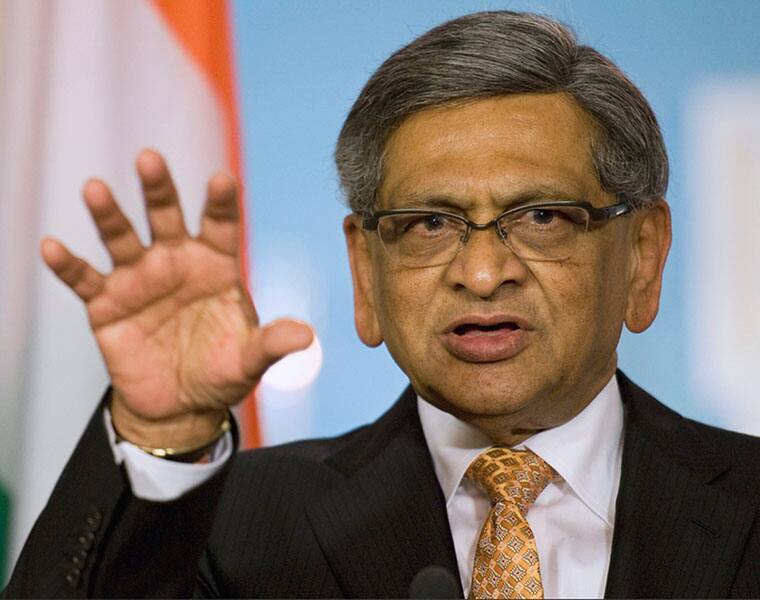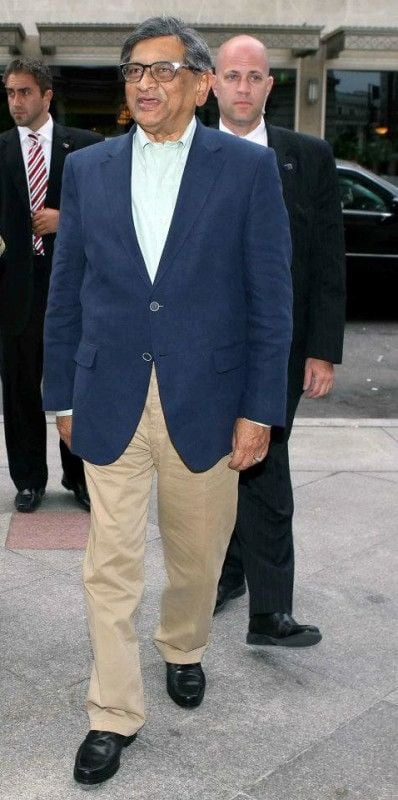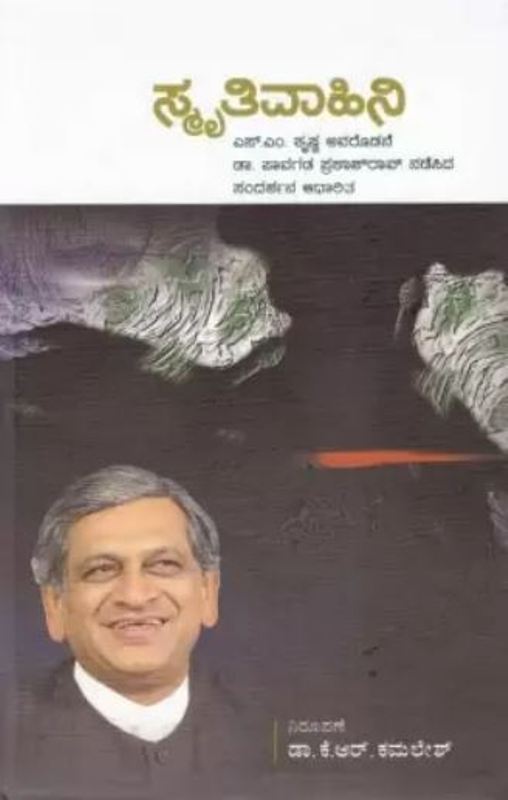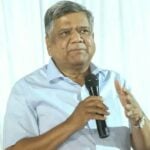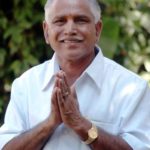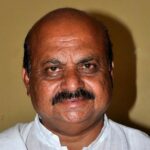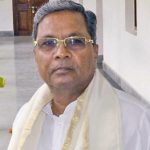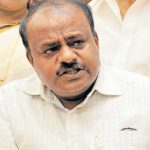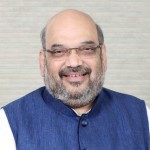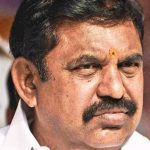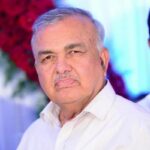S. M. Krishna Age, Death, Wife, Children, Family, Biography
| Bio/Wiki | |
|---|---|
| Full name | Somanahalli Mallaiah Krishna |
| Profession | Politician |
| Physical Stats & More | |
| Height (approx.) | in centimeters- 168 cm in meters- 1.68 m in feet & inches- 5’ 6” |
| Eye Colour | Black |
| Hair Colour | Salt & Pepper |
| Politics | |
| Political Party | • Praja Socialist Party (PSP)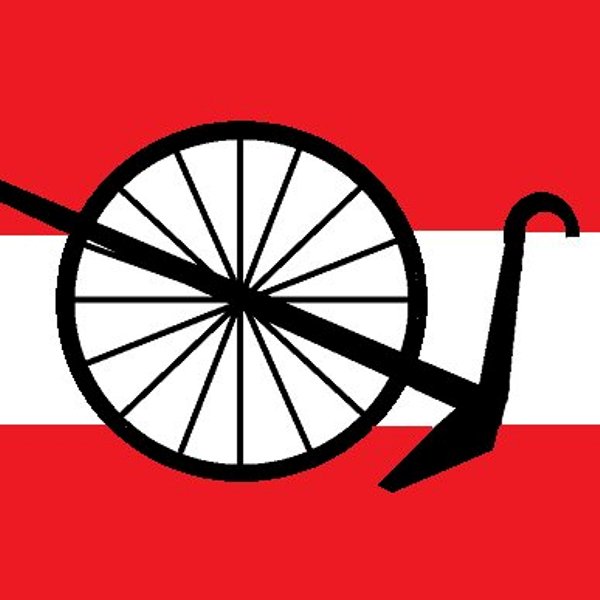 • Indian National Congress (INC) 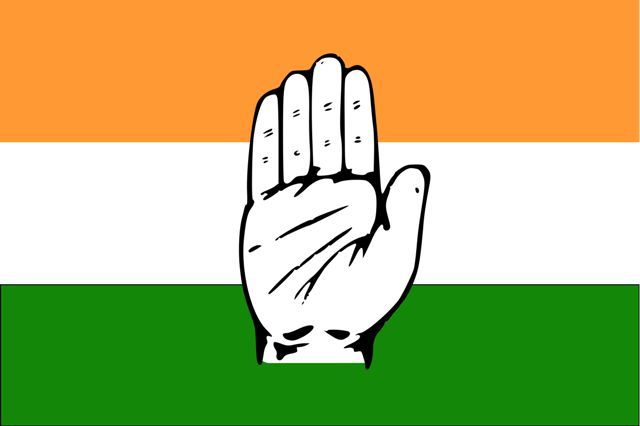 • Bharatiya Janata Party (BJP) 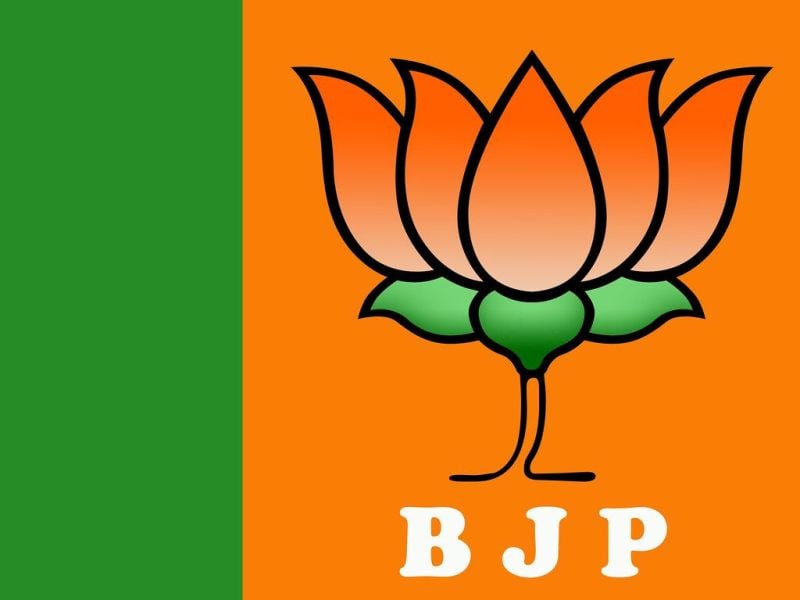 |
| Political Journey | Karnataka Legislature • Contested and won Mysore Legislative Assembly election from the Maddur constituency as an independent candidate (1962) • Joined Praja Socialist Party (PSP) • Contested the Mysore Legislative Assembly elections from the Maddur constituency; however, lost the elections (1967) • Served as a member of the Mysore Legislative Council (now Karnataka Legislative Council) (1972-1977) • Speaker of the Karnataka Legislative Assembly (1989-1992) • Won the 1989 Karnataka Legislative Assembly elections on a ticket from the Indian National Congress (INC) party from the Maddur constituency and served in this position till 1994 • Served as the president of the Karnataka Pradesh Congress Committee (KPCC) (February 1999 - June 2000) 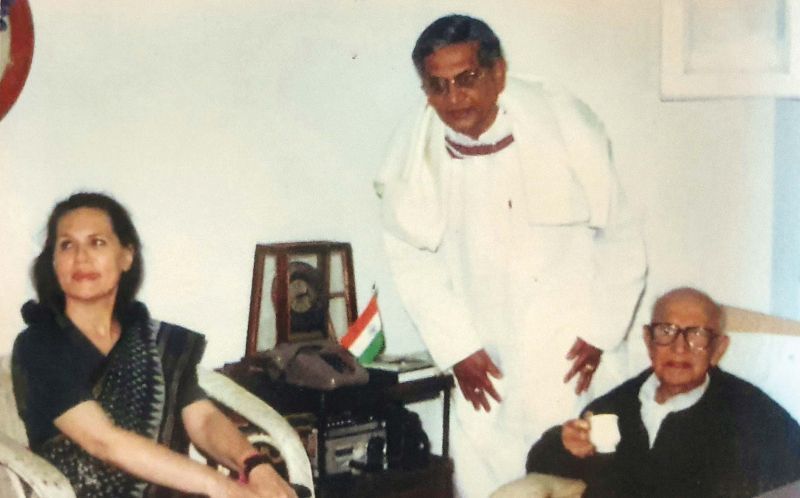 Member of Parliament • Contested the bye-elections in 1968 from the Mandya constituency on a ticket from the Praja Socialist Party and was elected to the 4th Lok Sabha • Re-elected to the 5th Lok Sabha from the Mandya constituency on a ticket from the Indian National Congress (INC) party (1971) • Became a member of the Indian delegation to the United States (1982) • Served as a Delegate to Commonwealth Parliamentary Seminar at Westminster, U.K. (March 1990) • Elected to the Rajya Sabha as an INC candidate from Karnataka (April 1996 - October 1999) Minister • Served as the Minister of Commerce, Industries, and Parliamentary Affairs for the Government of Karnataka (1972-1977) • Union Minister of State for Industry (1983-1984) • Union Minister of State for Finance (1984-1985) • Deputy Chief Minister of Karnataka (21 January 1992 - 11 December 1994) • Served as the 10th Chief Minister of Karnataka (11 October 1999 - 20 May 2004) • Minister of External Affairs (23 May 2009 - 28 October 2012) 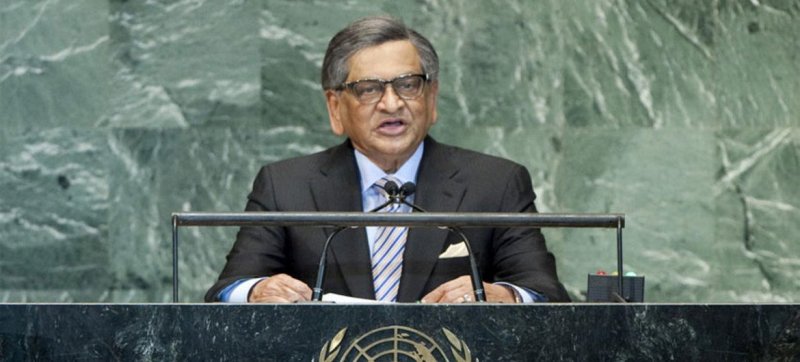 Governor • Served as the 18th Governor of Maharashtra (12 December 2004 - 5 March 2008) • Resigned from his primary membership of Congress (28 January 2017) • Joined the Bharatiya Janata Party (BJP) in the presence of the 31st Minister of Home Affairs Amit Shah (22 March 2017) 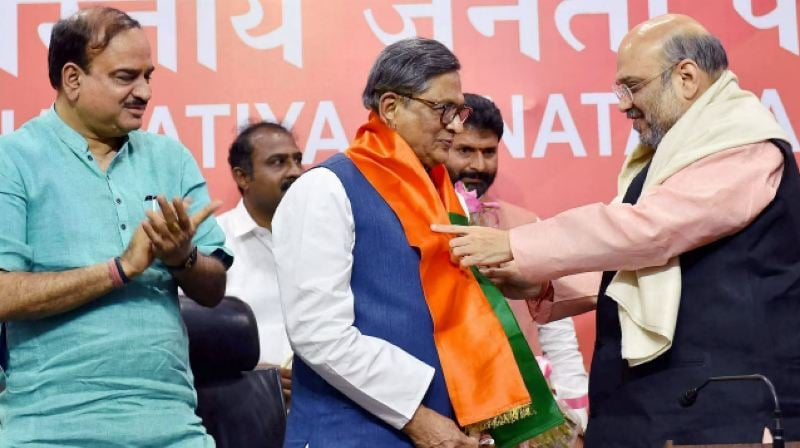 • Announced his retirement from politics (7 January 2023) |
| Awards & Honours | 22 March 2023: Padma Vibhushan, the second-highest civilian award in India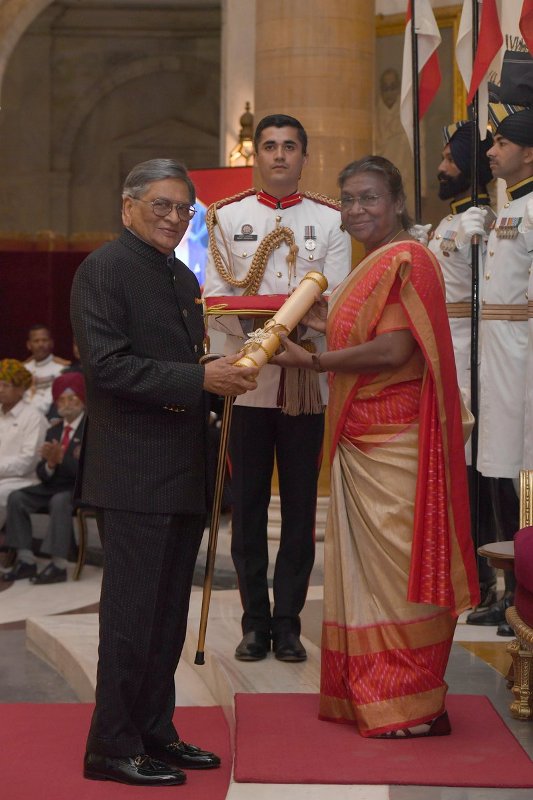 |
| Personal Life | |
| Date of Birth | 1 May 1932 (Sunday) |
| Birthplace | Somanahalli, Kingdom of Mysore, British India (now Karnataka, India) |
| Date of Death | 10 December 2024 |
| Place of Death | His residence in Bengaluru |
| Age (at the time of death) | 92 Years |
| Death Cause | Pneumonia and pulmonary congestion |
| Zodiac sign | Taurus |
| Signature | 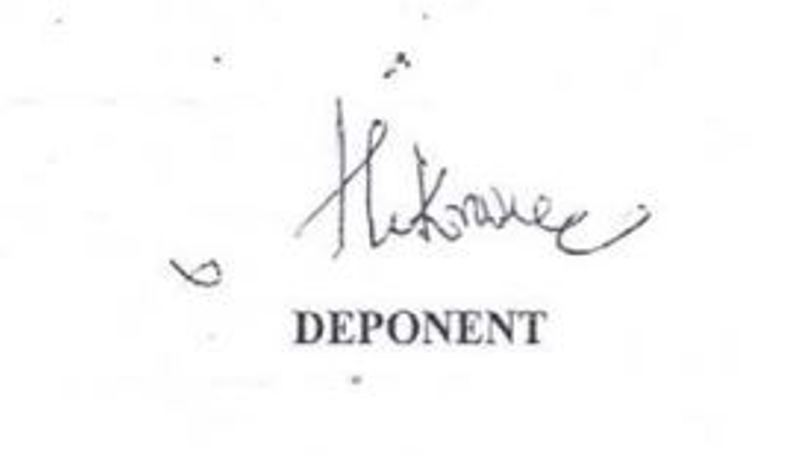 |
| Nationality | Indian |
| School | Sri Ramakrishna Vidyashala, Mysore, Tamil Nadu (now in Karnataka) |
| College/University | • Maharaja’s College, University of Mysore (1952) • Government Law College in Bangalore (now University Law College in Bengaluru, Karnataka) (1955) • Southern Methodist University in Dallas, Texas, US (1958-1962) |
| Educational Qualification(s) | • Bachelor of Arts from Maharaja’s College, University of Mysore • Bachelor of Law from Government Law College • Master of Corporate Law (M. C. L.) under Fulbright Scholarship at Southern Methodist University |
| Caste | Vokkaliga [1]The Indian Express |
| Controversy | Allegations of Illegal Mining: In 2011, S. M. Krishna, along with former Karnataka Chief Ministers N. Dharam Singh and H. D. Kumaraswamy, faced an FIR lodged by the Karnataka Lokayukta police regarding allegations of illicit mining. The accusation was put forth by businessman and activist Abraham T. J., who claimed that Krishna exploited the state's natural resources for personal benefit during his tenure as Chief Minister of Karnataka from 1999 to 2004. According to Abraham, Krishna's decision to deregulate around 11,797 square kilometres of forest in Ballari (previously Bellary) district paved the way for extensive illegal iron ore mining and other unauthorized activities. Abraham further alleged that Krishna amassed wealth illegally in the names of his relatives and ex-cabinet colleagues in exchange for deregulating forest land for private enterprises. In support of his accusations, Abraham presented documents obtained via RTI, detailing investments made by Krishna’s son-in-law; however, due to insufficient evidence, the supreme court put a stay on the probe against Krishna on 16 November 2016. |
| Relationships & More | |
| Marital Status (at the time of death) | Married |
| Marriage Date | 29 April 1964 |
| Family | |
| Wife/Spouse | Prema (social activist)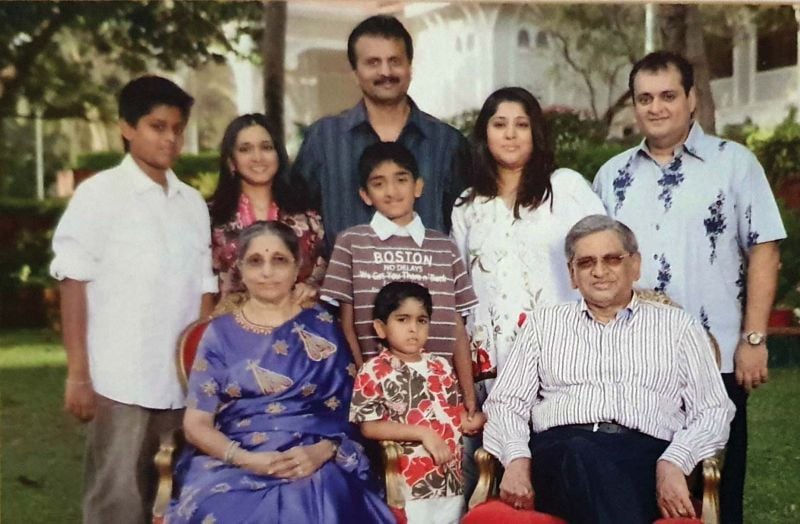 |
| Children | Daughter(s)- 2 • Malavika Krishna (businesswoman) • Shambhavi Krishna (businesswoman) Note: Malavika Krishna is the widow of V. G. Siddhartha, a businessman and the founder of Cafe Coffee Day who reportedly committed suicide in 2019. (Image is in wife/spouse's section.) |
| Parents | Father- S. C. Mallaiah |
| Money Factor | |
| Assets/Properties | Movable Assets • Cash: Rs. 95,000 • Bank Deposits: Rs. 47,47,495 • Bonds, Debentures and Shares in companies: Rs. 3,06,000 • Other Financial Instruments (PPF): Rs. 6,51,049 • Motor Vehicles: Rs. 21,38,000 • Jewellery: Rs. 50,000 Immovable Assets • Agricultural Land: Rs. 6,65,000 • Non-Agricultural Land: Rs. 1,80,000 • Buildings: Rs. 1,25,00,000 Note: The given estimates of movable and immovable assets are according to the year 2008. It excludes the assets owned by his wife and dependents (minor). [2]S. M. Krishna - Affidavit |
| Net Worth (approx.) | Rs. 2,10,77,544 Note: The net worth was for the year 2008. It excludes the net worth of his wife and dependents (minors). [3]S. M. Krishna - Affidavit |
Some Lesser Known Facts About S. M. Krishna
- S. M. Krishna, a distinguished figure in Indian politics, held several prominent roles in the Government of Karnataka. He served as the 10th Chief Minister of Karnataka from 1999 to 2004 and later as India’s Minister of External Affairs from 2009 to 2012. With a political career of over six decades, Krishna is recognized for his visionary leadership and exceptional administrative skills.
- Before venturing into the political landscape, S. M. Krishna had an academic stint as a professor of International Law at Sri Jagadguru Renukacharya College of Law in Bengaluru, Karnataka. [4]Raj Bhavan Maharashtra
- S. M. Krishna’s political engagement dates back to his college years. During his second year, he contested the student union elections, but he lost by 57 votes.
- S. M. Krishna was appointed as the Deputy Chief Minister of Karnataka on 21 January 1992, marking his entry into history as the first individual to hold this position. He served in this position till 11 December 1994.
- While serving as the Minister of External Affairs, S. M. Krishna made substantial diplomatic trips, one notable example being a 2012 visit to Tajikistan, aimed at bolstering energy and economic connections. He instituted impactful power reforms with Electricity Supply Companies (ESCOMs) that supervise electricity distribution across Karnataka. Krishna played a pivotal role in the digitization of land records under the Bhoomi initiative, a collaborative project between the Indian government and the Karnataka state government. This move transitioned from paper to digital records, overseen by the National Informatics Centre (NIC), effectively tackling chronic issues of inefficiency and corruption in various regional offices across India. A highlight of Krishna’s term was his focus on public-private partnerships, leading to the formation of the Bangalore Agenda Task Force. This task force, comprising representatives from both public and private sectors, aimed to involve leaders from the business and civic spheres in drafting a comprehensive city development plan with a primary focus on infrastructure enhancement and service delivery improvement. His tenure saw impressive feats in urban development, such as the construction of the Hebbal Flyover, among India’s longest, significantly reducing traffic congestion. In response to persistent drought conditions, he was the pioneer behind innovative cloud seeding programs.
- Krishna’s leadership faced some serious tests, one of which was the abduction of the famous Kannada actor Dr Rajkumar by the notorious bandit Veerappan. Krishna, however, successfully negotiated this situation, ensuring the safe return of Dr Rajkumar.
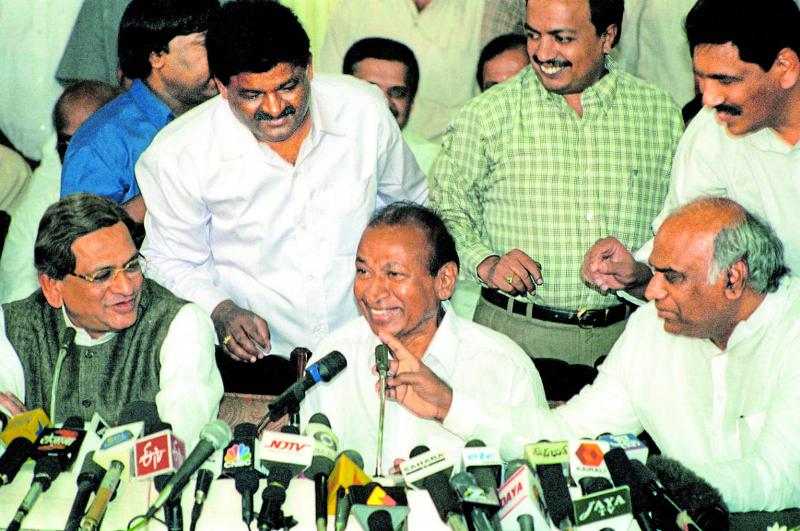
S. M. Krishna (left), Dr Rajkumar (centre), and Mallikarjun Kharge (right) addressing a press conference at Vidhana Soudha in Bengaluru after Rajkumar’s release from the clutches of forest brigand Veerappan in 2000
The second major challenge was managing the escalating conflict over the distribution of the Kaveri River’s waters, a longstanding issue between the Indian states of Tamil Nadu and Karnataka. Karnataka’s Krishna Raja Sagara Dam provides water for irrigation and meets Bangalore’s water needs, while Tamil Nadu’s Mettur Dam supplies water to the state’s delta region’s agricultural fields. Both dams are located on the same river, with Mettur Dam downstream, which means it can only receive water if it’s released from the upstream Krishna Raja Sagara dam. This situation led to water access issues for both states. In response to this crisis, Krishna undertook a padayatra (foot march) from Bengaluru to Mandya. He aimed to provide reassurance to the farmers of the Kaveri basin, affirming the government’s continued support in these challenging circumstances.
- On 28 January 2017, S. M. Krishna decided to resign from his primary membership in the Congress party. His resignation was motivated by his belief that the party did not adequately value senior members and had strayed from its core principles. In a press conference, he expressed his views on his resignation, stating that the party seemed to prioritize managers rather than genuine political leaders. Furthermore, he voiced his concerns about a perceived lack of respect shown towards senior members within the party. [5]The Economic Times While addressing the press conference, Krishna said,
The party just wants managers now, not mass leaders. I am old, yes, but is that a reason to sideline a loyal partyworker? A party that doest not respect seniors does not have a future.”
- In January 2020, a collection of six books, titled “Krishna Patha,” which documents his political trajectory, was unveiled. Among these books, ‘Smriti Vahini’ stands out as a compilation of dialogues between Krishna and his scholarly companion, Pavagada Prakash Rao. This particular book was conceived from 200 hours of recorded conversation with Krishna during his tenure as the Governor of Maharashtra. Smriti Vahini provides an insight into Krishna’s early years as a public figure, painting a detailed picture of his formative experiences in public life.
- Krishna was an avid lawn tennis player and a regular yoga practitioner. He also liked reading.
- Krishna passionately engaged in designing clothes, particularly men’s wear.
- According to the biography of politician Adaguru Huchegowda Vishwanath, Krishna harboured a special fondness for Indian actress B. Saroja Devi, also known as Bangalore Saroja Devi. The biography further states that Saroja Devi’s mother once approached Krishna’s family with a proposal of marriage, but no developments followed thereafter. [6]The Times of India
- S. M. Krishna took charge of John F. Kennedy’s presidential campaign in the United Nations’ regions with substantial Indian populations, reflecting his deep admiration for Kennedy, whom he viewed as his political mentor. According to reports, in September 1960, Krishna reached out to Kennedy through a letter, expressing his keen interest in managing his campaign in these localities. Kennedy accepted Krishna’s offer, and when he secured the presidency, he conveyed his gratitude to Krishna in a letter.
- According to reports, S. M. Krishna was previously critical of the concept of Hindutva. However, his perspective shifted after witnessing the deep religious beliefs of the Vokkaliga community in Karnataka. In an interview, Krishna mentioned that the Vokkaliga community in Karnataka demonstrated strong religious sentiments and felt a connection to the ideology of Hindutva, which they observed in politics. [7]The Hindu
- In April 2024, Krishna was admitted to the Vydehi Super Speciality Hospital in Bengaluru after contracting a lung infection. He was later shifted to Manipal Hospital for advanced treatment.
- In August 2024, Krishna was discharged from the hospital. In October 2024, he was once again admitted to the hospital after his health started deteriorating.
- After his death on 10 December 2024, he was cremated with full state honours as per the Vokkaliga traditions.
References/Sources:

